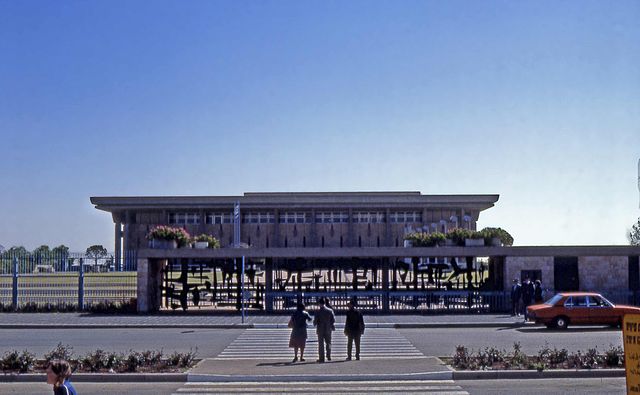The status of Jerusalem has been described as "one of the most intractable issues in the Israeli–Palestinian conflict" due to the long-running territorial dispute between Israel and the Palestinians, both of which claim it as their capital city. Part of this issue of sovereignty is tied to concerns over access to holy sites in the Abrahamic religions; the current religious environment in Jerusalem is upheld by the "Status Quo" of the former Ottoman Empire. As the Israeli–Palestinian peace process has primarily navigated the option of a two-state solution, one of the largest points of contention has been East Jerusalem, which was part of the Jordanian-annexed West Bank until the beginning of the Israeli occupation in 1967.
Jerusalem municipal area
Israel's parliament
Israeli–Palestinian conflict
The Israeli–Palestinian conflict is an ongoing military and political conflict about land and self-determination within the territory of the former Mandatory Palestine. Key aspects of the conflict include the Israeli occupation of the West Bank and Gaza Strip, the status of Jerusalem, Israeli settlements, borders, security, water rights, the permit regime, Palestinian freedom of movement, and the Palestinian right of return.
Haganah ship Jewish State carrying illegal Jewish immigrants from Europe at the Haifa Port, Mandatory Palestine, 1947
Aftermath of a Palestinian suicide bombing on a bus in Tel Aviv
Yitzhak Rabin, Bill Clinton, and Yasser Arafat during the Oslo Accords on 13 September 1993.
Israeli West Bank barrier in Bethlehem






